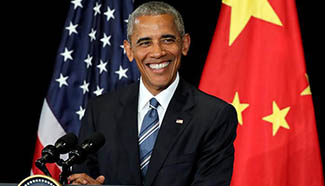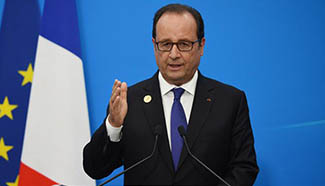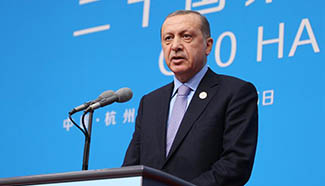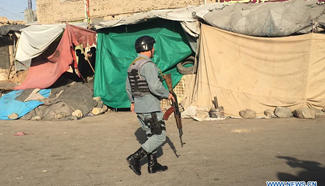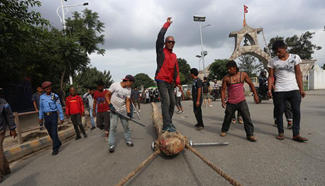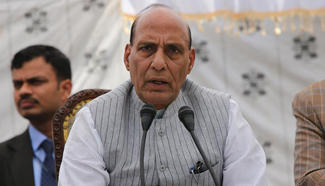BEIJING, Sept. 5 (Xinhua) -- It is a hope of China that the United States and South Korea will make positive contribution to regional stability and development instead of mishandling sensitive issues and intensifying disputes by deploying the THAAD anti-missile system.
At the G20 Hangzhou Summit, Chinese President Xi Jinping and his U.S. counterpart Barack Obama had in-depth, candid and constructive talks on China-U.S. relations and major regional and global issues of common interests, and reached consensus on a wide range of important issues.
The two sides agreed to continue the joint endeavor to move forward their new model of major-country relationship, pledging to deepen mutual trust and coordination, and manage differences in a constructive manner to promote the sustained, sound and steady development of China-U.S. relations.
The determination and joint leadership that China and the United States have demonstrated on the sidelines of the G20 summit in fighting climate change have also won widespread applause.
During his meeting with South Korean President Park Geun-hye, Xi praised the "leapfrog development" of bilateral ties, saying China and the Republic of Korea should cherish their political mutual trust, safeguard the basis for bilateral cooperation, and overcome difficulties and challenges to put bilateral ties on the right track toward stable and healthy development.
Xi also reaffirmed China's commitment to achieving denuclearization on the Korean Peninsula, safeguarding peace and stability of the peninsula, and solving relevant issues through dialogue and consultation.
However, the Chinese president also clearly expressed China's opposition against the U.S. deployment of the anti-missile system of Terminal High Altitude Area Defense (THAAD) in South Korea during his talks with Obama and Park separately.
Xi told Obama that China opposes the deployment of the anti-missile system of THAAD in South Korea, while urging the United States to respect China's strategic security interests.
While meeting with Park, Xi stressed that mishandling the issue is not conducive to strategic stability in the region, and could intensify disputes.
It is not common for China to clearly express opposition to the possible deployment of THAAD on such bilateral diplomatic occasions, which shows China's serious concerns about the issue.
The THAAD issue has already become a roadblock to China's relations with the United States as well as South Korea. China's legitimate concerns deserve understanding by the two countries, which need to avoid taking any moves that might put regional peace further at risk.
THAAD's X-band radar is believed to have a detection range as far as 2,000 km in forward-based mode. Thus once placed in South Korea, the United States would be able to peer conveniently deep into China and Russia, imposing a grave threat to the security interests of the two countries and to regional peace.
With Seoul agreeing to let THAAD in, a new arms race is well expected. If that were to happen, then regional countries would be sucked into a security dilemma and an unavoidable action-reaction cycle.






